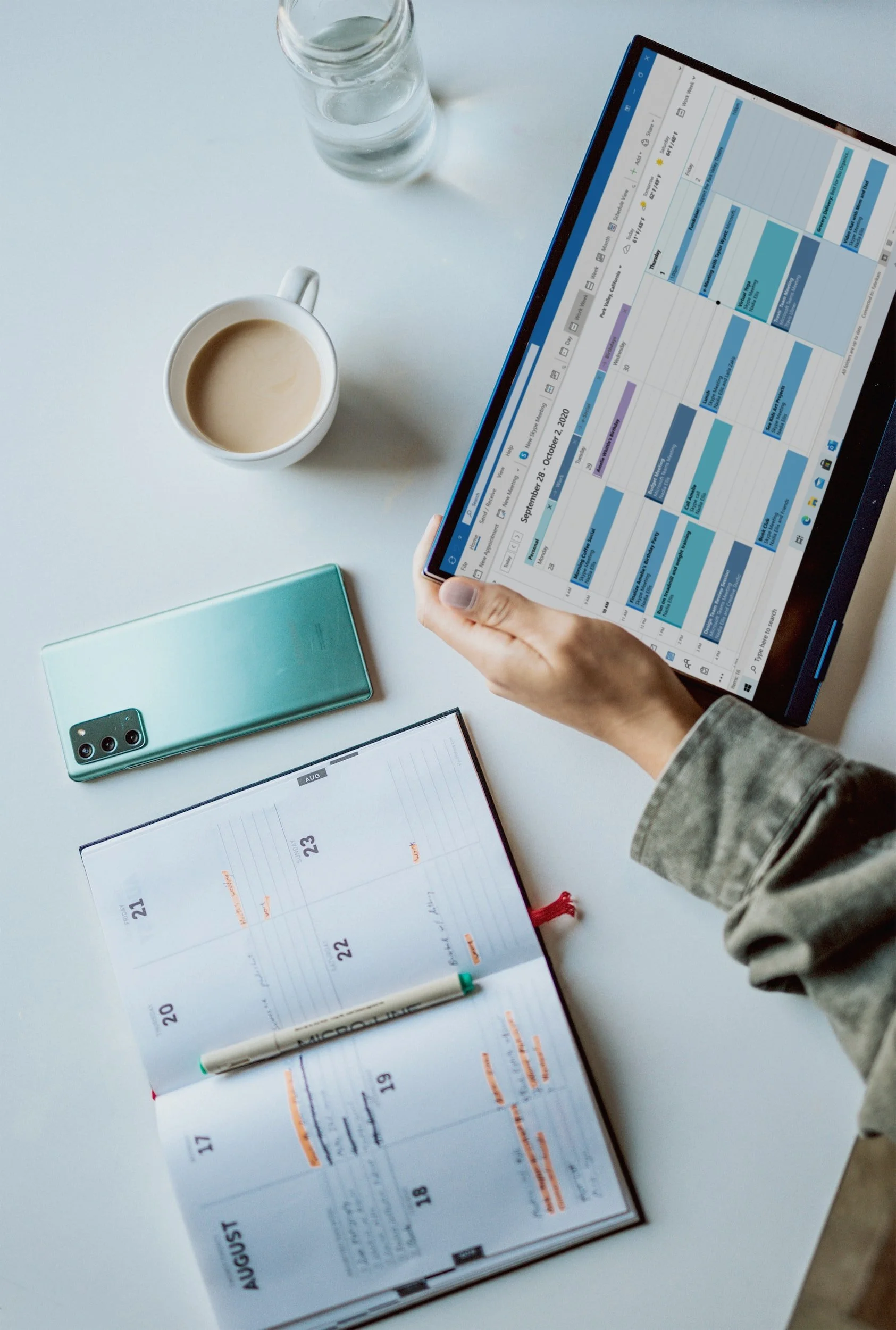Maximizing Your Meal Planning Potential: How to Schedule Your Grocery Shopping and Meal Planning
Are you starting to feel more comfortable with the idea of meal planning and its benefits? One way to take your meal planning to the next level is to start considering the days and times when you typically have the most energy for grocery shopping, online grocery ordering, and meal planning/prepping.
First things first, let's talk about why this is important. Meal planning can save you time, money, and even improve your health. But, without careful consideration of when you'll have the most energy to do it, it can quickly become overwhelming and unsustainable.
For example, if you typically have the most energy on weekends, planning to do all your grocery shopping, meal prepping, and cooking on Monday may not be the best idea. You might find yourself feeling burnt out before you even get started. On the other hand, if you're a morning person, planning to do your grocery shopping and meal prepping early in the day may help you stay on track and feel accomplished before the rest of your day gets going.
So, start by looking at your weekly schedule and figuring out when you typically have the most energy to devote to meal planning and preparation. This could be a specific day of the week, a certain time of day, or a combination of both.
I like to meal plan one week out, so by taking a look at my upcoming schedule, I can determine some key things like:
What day of the week will be best to go grocery shopping or is it too hectic of a week and it’s best to put in a grocery order?
Will I have time to cook in the evening or is it better to prepare ahead in the morning (i.e. crockpot meal)?
How many days can I cook dinner versus doing leftovers or take-out?
Once you've identified your high-energy days and times, you can start plugging in specific tasks and recipes. For example, if you have the most energy on Sunday afternoons, you could plan to do your grocery shopping and meal prepping then. You might decide to prep ingredients for a few different meals, such as a big pot of soup or a batch of roasted vegetables that can be used throughout the week. Then, on Monday, you can use those prepped ingredients to quickly assemble a few different meals.
What I like to do is map out whether I am going to prepare dinner in the morning or on the spot. For example, most Monday nights I make roast salmon, sweet potato, and Brussel sprouts. If it’s going to be a hectic evening, I might pre-chop my veggies in the morning and keep them in the fridge to roast right at dinnertime. Or if I know I have a lot of nutrition counseling sessions in the evening and there’s no time to cook, then that’s a day where I will do a crockpot meal and prepare it in the morning to be ready at dinnertime.
The more knowledge you have ahead of time about your schedule, and what prep method works best for you, the better!
As you get more comfortable with the process, you can start getting more specific with your meal planning. For example, you might decide that Monday nights will always be for take-out, so you don't have to worry about cooking that night. On Tuesday, you could plan to make a big batch of chili that can be eaten throughout the week. Wednesday might be a good day to make a big salad with lots of different toppings, while Thursday could be a good day to cook a simple stir-fry with plenty of vegetables. Remember - keep it simple!
By planning out your meals in this way, you'll have a better idea of what you need to buy at the grocery store each week, and you'll be less likely to make random or convenience choices that you might later regret. Plus, you'll have the satisfaction of knowing that you're nourishing your body with healthy, delicious meals.
Remember, meal planning is a skill that takes time and practice to master. Start out small with an easy and attainable goal, and continue to build upon it as you become more comfortable. For example, maybe you want to master meal planning your dinners initially. Once you gain confidence there, maybe next you’ll add lunch, then breakfast.
The more you plan, the more successful you'll be in creating healthy habits that will last a lifetime!
Next weeks post, I’ll teach you how to put your meal planning skills into action :)

